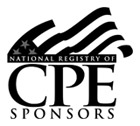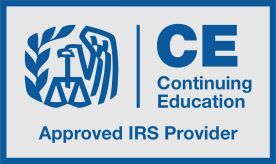

View Details/Register
View Details/Register
View Details/Register
View Details/Register
View Details/Register
View Details/Register
View Details/Register
View Details/Register
View Details/Register
View Details/Register



CPA - medium firm
CPA - large firm
Enrolled Agent
This course delves into the consequences of trusts owning interests in S corporations and partnerships. This presentation will include a discussion of which trusts are eligible to hold S corporation stock and how they are taxed. The program includes a review of how K-1 income and distributions can have a mismatch and what can be done about it. Additionally, the course examines planning for the passive loss rules and net investment income (NII) tax. The instruction concludes with how to plan for and manage the sale of a pass-through entity.
Learning Objectives:
- Define how K-1 income can get trapped inside a trust and how to deal with paying taxes and beneficiaries' demands for income
- Evaluate which trusts can hold S corporation stock—including grantor trusts, qualified subchapter S trusts (QSSTs), and electing small business trusts (ESBTs)
- List deadlines for QSST and ESBT elections and what to do when the deadline is missed
- Outline the basics of state income taxation and pass-through entity tax election
- Summarize the rules for passing depreciation deductions to beneficiaries, even when that exceeds income distributed to them
- Determine how trustee material participation works, including what the Frank Aragona Trust case did and did not say
- Identify QSST taxation when an S corporation is sold and general income tax consequences when a non-grantor trust or estate reports the sale of a business
This course assumes a basic understanding of partnership/S corporation income taxation, which one may obtain from the webinar, How to Shift Income to Beneficiaries, or other sources.

Steve Gorin, CGMA, CPA, J.D.
Thompson Coburn LLP
Partner
[email protected]
(314) 552-6151
Steve has drafted trusts and a full range of estate planning documents for clients to help grow, preserve, and transmit their family wealth. He has also prepared organizational documents for limited liability companies, corporations, and partnerships to implement their owners' wishes regarding current and future control and transmission, including bringing in new owners and facilitating exit strategies.
Steve enjoys helping clients structure their affairs to achieve their personal, business, and financial goals while reducing the drag that taxes imposed on them. His firm provides full service to businesses; however, he also acts as counsel on specialized matters while cooperating and facilitating the continued involvement of an existing legal, accounting, and financial services team. Steve maintains his CPA license but prefers to refer income tax returns to practicing CPAs.
Steve Gorin is the former president and an ongoing contributor to Covenant Place’s strategic initiatives. It is a senior affordable housing community with a groundbreaking model for integrated residents with the surrounding community and facilitating holistic services to enrich their lives.
To know more about Steve Gorin, kindly click on the link below:
http://thompsoncoburn.com/people/steve-gorin
For various free resources Steve offers, see https://www.thompsoncoburn.com/insights/blogs/business-succession-solutions/about
- To receive CPE credit, you must register for the webinar before it starts.
- CPE is available to all eligible participants within 24 hours of each webinar.
- To receive CPE for multiple attendees, at least one person must sign up for the webinar. The post-webinar email contains a link to instructions for the proctor letter. Alternatively, you may log in to your account following the webinar and click on the MY ACCOUNT button to find a link to instructions. For paid courses, payment needs to be made for each attendee before credit will be issued.

NASBA Approved
CPAacademy.org (Sponsor Id#: 111889) is registered with the National Association of State Boards of Accountancy (NASBA) as a sponsor of continuing professional education on the National Registry of CPE Sponsors. State boards of accountancy have final authority on the acceptance of individual courses for CPE credit. Complaints regarding registered sponsors may be submitted to the National Registry of CPE Sponsors through its website: www.nasbaregistry.org.
CPAacademy.org 1685 S. Colorado Blvd, Suite #205, Denver, CO 80222

EA Approved
CPAacademy.org (Sponsor Id#: HURS9) has entered into an agreement with the Internal Revenue Service, to meet the requirements of 31 Code of Federal Regulations, section 10.6(g), covering maintenance of attendance records, retention of program outlines, qualifications of instructors, and length of class hours. This agreement does not constitute an endorsement by the IRS as to the quality of the program or its contribution to the professional competence of the enrolled individual. Credit earned by attendees with a PTIN will be reported directly to the IRS as required of all providers. To ensure your CPE hours are reported, update your profile in My Account to include your PTIN number. Please note: IRS CE is only mandatory for EAs and ERPAs. For all other tax return preparers, CE is voluntary.
CPAacademy.org 1685 S. Colorado Blvd, Suite #205, Denver, CO 80222
For approximately 90 years, Thompson Coburn LLP has provided the quality legal services and counsel our clients demand to achieve their most critical business goals. Whether helping with a tax, estate planning, real estate or employment issue, navigating a complex acquisition or defending a product or service in litigation, we have the knowledge and resources to meet any legal need.
With over 380 attorneys, we have experience in more than 50 areas of the law. Supported by our firm's state-of-the-art technology, lawyers in our Chicago, Dallas, New York, Los Angeles, Southern Illinois, St. Louis and Washington, D.C. offices enjoy a nationwide practice.



